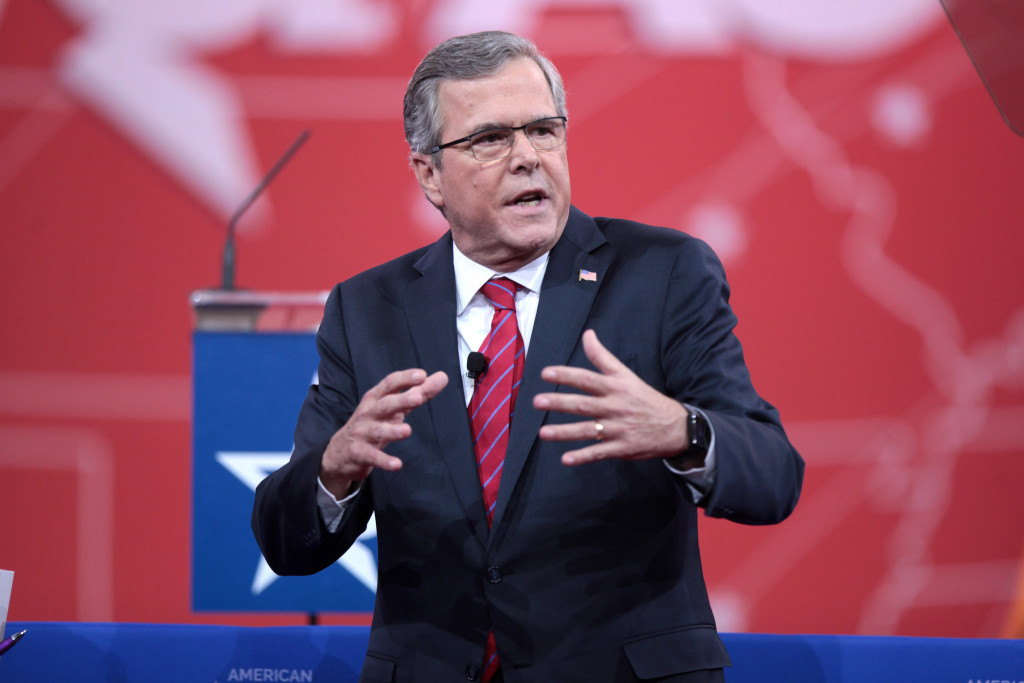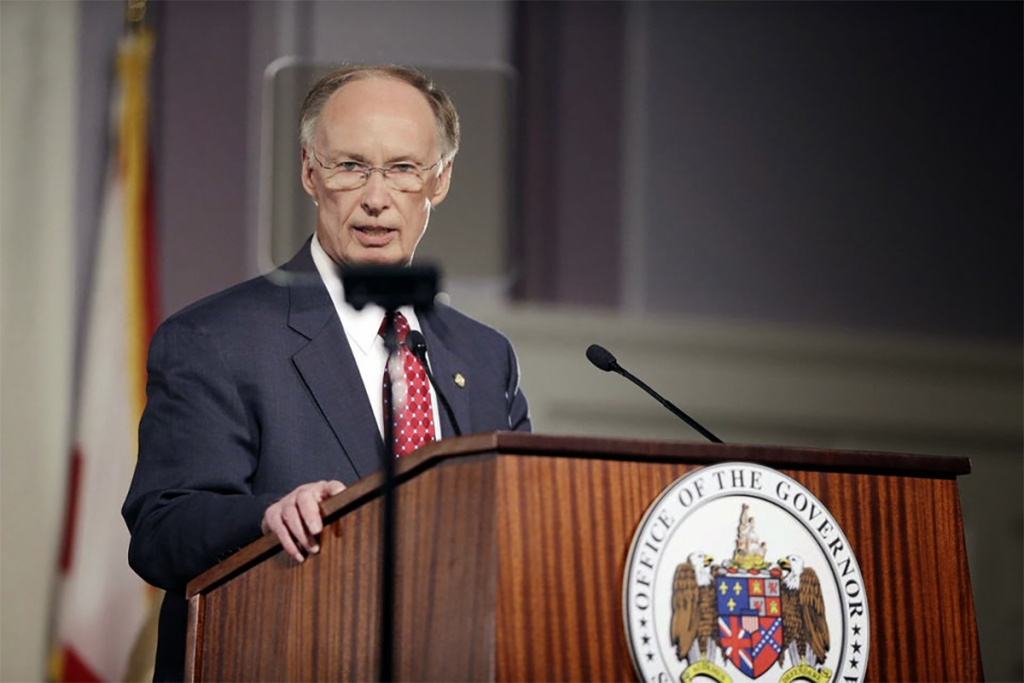Jeb Bush: Campaign decision “in relatively short order”

Jeb Bush said Thursday he will make up his mind “in relatively short order” whether to seek the Republican nomination for president in 2016. The former Florida governor will be in New Hampshire this weekend to speak at town hall-style meetings at two businesses and at a GOP event. He will also attend a night event called Politics and Pies and a morning event called Politics and Eggs, he said. “Typical day in New Hampshire, apparently,” Bush told reporters Thursday in Jackson, Miss., where he attended a bill-signing ceremony with Republican Gov. Phil Bryant. Bush said he’s not concerned that several other hopefuls are ahead of him in launching their campaigns. “I’m on a journey to kind of measure support,” Bush said. “Other people’s processes are not really that relevant to me. I’ll make up my mind in relatively short order. I’m excited about just the possibility of being in a position to consider it.” He said his family supports his exploration of a presidential bid. “In a campaign, no matter if it’s running for governor or running for president or anything else, you’ve got to go earn it,” Bush said. “You’ve got to go earn people’s respect and persuade people that your ideas are better, that you have leadership skills to make it happen. You’ve got a heart for people. Those are the things that matter. Who’s winning, who’s losing? Who cares?” The law Bryant signed is based on a program created in Florida when Bush was governor. Mississippi will issue $6,500 vouchers for a small percentage of the state’s special education students. Families can use the public money to pay for private school tuition, tutoring or other education services outside the public schools. Mississippi has about 66,500 special-needs students. The new law will create vouchers for 500 students the first year. Over five years, the program will grow to 2,500 students. Bush said he expects the program to boost educational opportunities in Mississippi, where fewer than 25 percent of special education students finish high school. “The schools will start becoming more focused on the challenges of children with learning disabilities and more kids will rise up,” Bush said. “I know in Florida when we gave kids choices they didn’t have, all schools got better.” Republished with permission of The Associated Press.
Kelley Paul plans quiet role in husband Rand’s 2016 campaign

Kelley Paul says she’ll use her background as a political consultant to provide behind-the-scenes support to husband Rand‘s 2016 Republican presidential bid. In an interview at The Citadel on Thursday, Kelley Paul told The Associated Press that she doesn’t plan to have a front office at campaign headquarters. Instead, the mother of three said she feels more comfortable working from home, intent on helping her husband with speechwriting and other ways to get his message out, something she’s done since his 2010 senatorial bid. “That’s just been the natural give and take that we’ve had for years — when he writes something, he’ll show it to me, and I’ll give it some ideas and some suggestions,” she said. “We enjoy kind of bouncing our work off each other a little bit like that. … I don’t want to have an official role in the campaign.” Reserved but politically savvy, Kelley Paul worked for a Republican consulting firm whose clients included another announced presidential candidate, Texas U.S. Sen. Ted Cruz, before she resigned more than a year ago. She sat down with AP during her first solo campaign swing to early-voting South Carolina as part of the promotion of her recent book, “True and Constant Friends,” about lessons learned from her Irish immigrant grandmother and a close-knit group of friends from Rhodes College in Memphis, Tennessee. Rand Paul, a Kentucky senator, announced his candidacy last week. Saying she’ll continue to campaign with and for her husband, Kelley Paul told AP that she was encouraged by the early response to the campaign. “I feel like our announcement really did give the voters an idea not only of what Rand stands for but about what he’s done in his last four years in the Senate and kind of generated the excitement and the interest that we want the voters to feel about Rand,” she said. Asked about Rand Paul’s testiness in recent interviews with female reporters or on issues such as abortion, Kelley Paul dismissed any allegations of gender-bias as the product of partisan politics. “I think this whole idea that there’s some kind of gender problem with him, with some of these female interviewers, is sort of a phony construct, a false narrative that has been put out there, I think mostly on the left,” she said. “Rand is the kind of person that looks at someone for their intellect, their talents, their abilities and what they bring to the job. He’s the last person to ever make any kind of shallow judgment about someone based on their gender.” Republished with permission of The Associated Press.
Conservative group bars Log Cabin Republicans from event

Organizers of a conservative conference in Denver this summer have told a gay Republican group it cannot have a booth at the event. The Western Conservative Summit is scheduled for June in Denver, where thousands of conservative activists will gather to hear Republican presidential hopefuls such as Wisconsin Gov. Scott Walker and former Pennsylvania Sen. Rick Santorum speak. The event is organized by The Centennial Institute, a think tank affiliated with Colorado Christian University. On Wednesday, the president of the Centennial Institute, John Andrews, said his group had returned a $250 registration fee that the Log Cabin Republicans had sent in to secure a booth at the three-day summit. Because the group advocates for gay marriage, it cannot have an official presence at an event that promotes traditional family structure, he said. “We’d love to have them attend the summit and be in the discussion. But we have to draw the line at a formal relationship between two organizations with diametrically opposed policy beliefs,” Andrews said. It was the first time a gay Republican group had sought a booth at the annual gathering, he said. Alexander Hornaday, vice president of The Colorado Log Cabin Republicans, said the group was stunned by the rejection. “I think it’s very shortsighted,” Hornaday said. “What turns young people off from the right is a perception that the right is intolerant or anti-gay. This reinforces that perception.” The Human Rights Campaign, a national gay rights group, used the conflict to pressure Walker. “As a potential candidate, Gov. Walker should lead by example and tell the organizers that he will pull out of this event unless they allow equal access to LGBT Republicans,” spokesman Fred Sainz said. The Walker campaign did not respond to a request for comment. Republished with permission of The Associated Press.
Thomas Scovill: It’s time for ‘Bama to get out of booze business
Alabama’s state owned and operated retail liquor stores serve the sole purpose of transforming the wealth of Alabama taxpayers (about 4 million or so) into pay, benefits, and rents for a small group of state employers (about 600) and lease holders (no more than 176). The ongoing clamor over the proposal to close those stores illustrates the Law of Concentrated Benefit and Distributed Cost. In this case we have a large benefit paid to a few paid at a small cost to many. The small group benefits from a narrow public policy and fights hard to preserve the benefit. The broader group that pays for the benefit does not fight because they find it not worth the effort to oppose it. That’s one reason why special interest groups can be so powerful and successful in pushing harmful and unaffordable policy on state residents. The Alabama Education Association is another example of that principle in action. Alabama has a mix of state and private liquor stores, about 176 and 550 respectively, with the state stores doing about 75 percent of the business. Taxes are the same on the booze sold in both types of stores and those taxes all go to the Alabama treasury. Private stores also pay other taxes such as real estate and income taxes. The private stores also must buy the booze they sell from the state, but that calculus is not considered here. The state stores have annually distributed to the treasury excess revenue ranging from $303,000 to almost $13 million in the years 2008 through 2013. The net benefit of the state stores is small and variable. That benefit is also overstated because state accounting does not consider future payments that will have to be made to retired state employees because, like most states, the Alabama retirement system is underfunded. The Alabama is considering SB 115, a bill that would close the state liquor stores and make the retail booze business completely private. The Legislative Fiscal Office has said that would increase state tax revenue by $16 million to $25 million per year beyond the status quo described above. In a state facing a large budget deficit and the prospect of large tax increases, getting ‘Bama out of the booze business makes lots of sense to most people. So why the clamor over such a sensible bill? The clamor is explained by the Law of Concentrated Benefit and Distributed Cost. The small group getting benefits from working in or leasing stores is working hard to keep their benefits. That is as understandable as it is unaffordable — unless you want to pay more taxes. Even though they provide no benefit and perform no essential services for the taxpayers, the rent seekers and employees have lots to lose. They and their lobbyists have gotten to four Republican senators on the committee working SB 115 and persuaded them to block the bill and keep their gravy train going. In stopping the bill in committee, those senators have now bought the goodwill and votes of the special interest with taxpayers’ money. The special interests and their swineherds are not the only ones who can make noise, though. Now would be a good time for conservatives to speak up against cronyism and for limited government. Email: clyde.chambliss@alsenate.gov, steve.livingston@alsenate.gov, jabo.waggoner@alsenate.gov and camjulward@aol.com Thomas Scovill is a retired army officer and Republican activist. He lives in Madison and may be contacted at tjscovill@gmail.com
Alabama joins states asking high court to OK execution drug

Attorney General Luther Strange announced in a statement released Wednesday that Alabama has joined 12 other states in urging the U.S. Supreme Court to uphold a lethal injection drug. Arguments will be heard by the Supreme Court on April 29 regarding the effectiveness of the sedative midazolam in executions. Oklahoma inmates contend the drug constitutes cruel and unusual punishment after it was used in several problematic executions. Midazolam is the first drug to administered in a three-drug process. Strange’s office, in the court filing, said the drug was “humane and successful” pointing out that it has been used in 11 prior executions. The brief states, “There is no execution method or drug protocol that the states can adopt to stanch the flood of litigation, unless this Court strictly requires plaintiffs to identify a readily available alternative to the state’s method of execution.” Alabama agreed to halt executions earlier this year. AL.Com reported U.S. District Court Judge Keith Watkins said of a pending case, “That it is in the best interests of justice to continue a May hearing in that case until after the U.S. Supreme Court rules in the lethal injection case of Oklahoma death row inmate Richard Glossip.” According to the Alabama Department of Corrections, there are 193 inmates on the state’s death row
Gov. Robert Bentley’s 2014 tax returns: He’s still not taking salary

Gov. Robert Bentley’s 2014 tax returns show he and his wife reported an income of $217,032 for 2014, but that he is still not accepting a paycheck for being governor. Bentley released his income tax returns Wednesday, making good on a campaign promise to make his personal financial information public even though it is not required by law. On Bentley’s 2014 return, he and his wife, Dianne, reported $92,000 in IRA distributions, $83,794 in income from pensions and annuities, and $37,573 in Social Security benefits. The governor and his wife reported giving $13,513 to charity. The Bentley’s adjusted gross income was $210,327. The governor and first lady reported paying $35,159 in federal taxes and $5,284 in state taxes. Bentley, who was elected in 2010, campaigned on government transparency. He released his 2009 tax return during the campaign and has continued making public his federal and state tax returns every year since then. The governor is the only statewide-elected official in Alabama who does that. Democrat Parker Griffith, who unsuccessfully challenged Bentley in last year’s election, followed course and released his income tax return. The Bentleys’ reported household income is about five times the size of Alabama’s median household income of $43,253. The returns show that Bentley is also fulfilling another campaign promise: to not collect a salary. Bentley said during the 2010 election that he would not accept the $121,000 annual salary until the state returned to “full employment” — a level he defined as a 5.2 percent unemployment rate. The state’s unemployment rate was 5.8 percent in February. The 72-year-old Bentley, a dermatologist, maintains his medical license but has retired from full-time practice. He listed his occupation as governor/physician. The couple’s income is less than the $340,698 they reported in 2009, the last year Bentley worked full time as a doctor. Republished with permission of The Associated Press.
Mike Hubbard defense claims prosecutorial misconduct
Lawyers for indicted Alabama House Speaker Mike Hubbard on Wednesday tried to buttress claims that the case against the powerful Republican was tainted by politics. During a hearing they had a radio host and a legislator describe calls they got from a lead prosecutor in the case. Hubbard faces 23 felony ethics charges accusing him of using his political offices for personal gain. Hubbard is seeking to dismiss the charges for prosecutorial misconduct. Lee County Circuit Judge Jacob Walker has yet to rule on the motion while he sorts out whether the defense can question multiple employees of the attorney general’s office. During a court hearing, talk radio host Leland Whaley and state Rep. Mike Ball described telephone calls they received from Deputy Attorney General Matt Hart after Hubbard was arrested in October. Both said Hart called them unsolicited to discuss statements they made on air that they thought the case was politically motivated. “He told me that he was angry with me for saying that I knew for a fact that the prosecution was tainted by politics,” Ball testified. Ball, a former state trooper, said Hart indicated he called him because of his background in law enforcement and that Hart got “very loud” during the call. In an odd bit of courtroom drama, Hart questioned Ball on the witness stand, giving contrasting recollections of their 44-minute conversation. The exchanges became heated at times. Hart questioned Ball about his characterization that he was angry. “Do you remember I used the word ‘disheartened’?” Hart said. Ball said Hart was loud enough on the call that his wife could hear him across the room. Whaley said he received a similar call from Hart that he partially recorded. Although both Ball and Whaley said they considered it strange to get a call from Hart, they said he did not discuss the details of the investigation. Ball said he did believe that Hart was trying to convince him Hubbard was guilty. Prosecutors objected to the testimony, arguing that there was no misconduct because Ball and Whaley are not witnesses or have any other role in the case. Hubbard’s defense is also trying to question 17 current or former members of the attorney general’s office. Walker has not yet ruled on prosecutors’ request to block those subpoenas. White said the judge has determined a process for deposing those witnesses outside of the public courtroom. Defense lawyer Mark White said Ball’s testimony was a “smaller piece of the puzzle.” “Prosecutorial misconduct is very, very difficult to locate and find because so much of it is internalized,” White said outside the courtroom. “What you essentially had was a prosecutor lobbying a representative who is not in his district to take action on the speaker remaining as speaker and to take a political position.” Prosecutors have accused Hubbard’s defense of trying to manufacture a bogus narrative of misconduct and of mounting a “fishing expedition” with the subpoenas to the attorney general’s office. “They have no evidence to support their claims,” Deputy Attorney General Michael Duffy told Walker. “That sounds like a fishing expedition to me. We don’t know what’s going on in the attorney general’s office, but we’d like to know because it could be helpful.” Walker seemed doubtful of one defense claim. Hubbard’s defense argued that Attorney General Luther Strange did not have the authority to select retired district attorney Van Davis to oversee the investigation when Strange stepped aside from the case. Hubbard’s defense was trying to subpoena any documents related to Davis’ appointment. Walker asked how that claim was any different than the one raised by Rep. Barry Moore, who was acquitted of perjury charges in a related case. Walker ruled that Davis was rightfully appointed to oversee that case. The judge told the defense team to seek the information through a discovery request rather than a subpoena. Republished with permission of The Associated Press.


